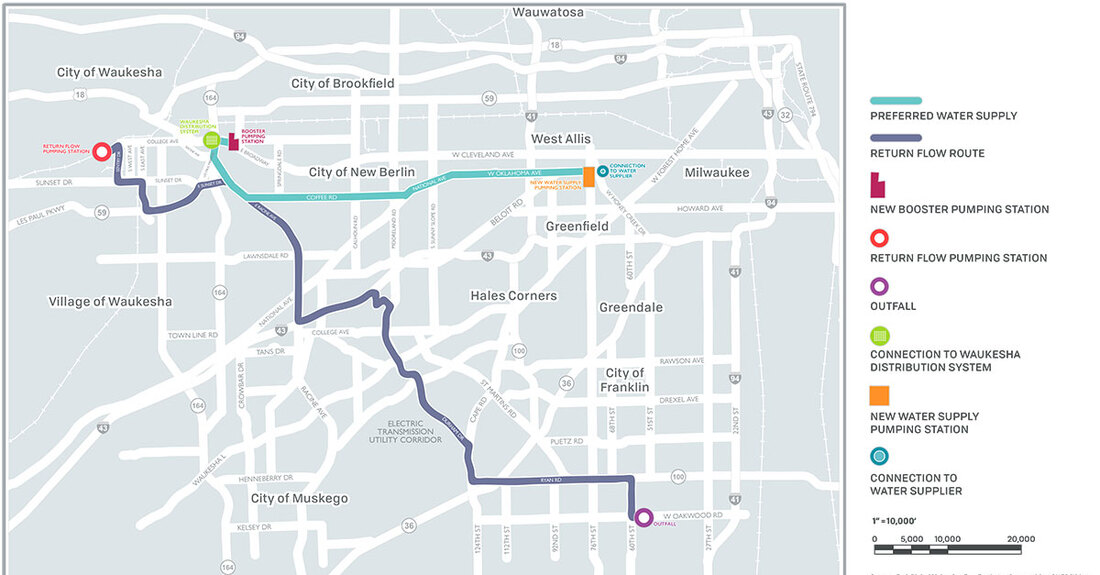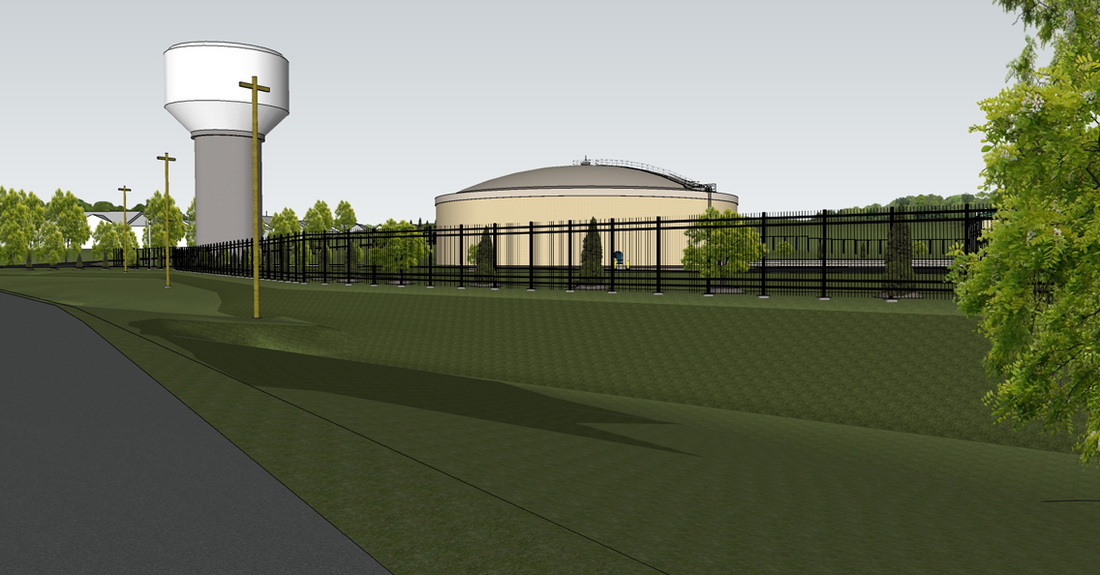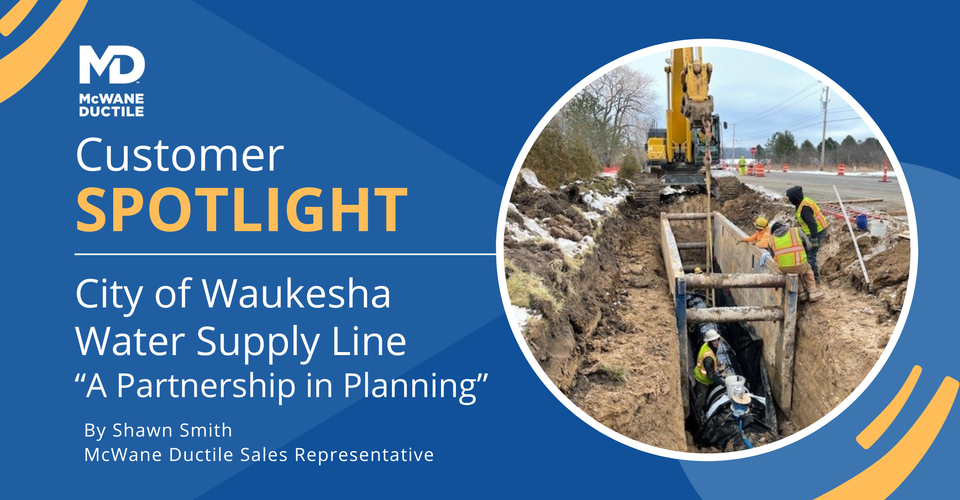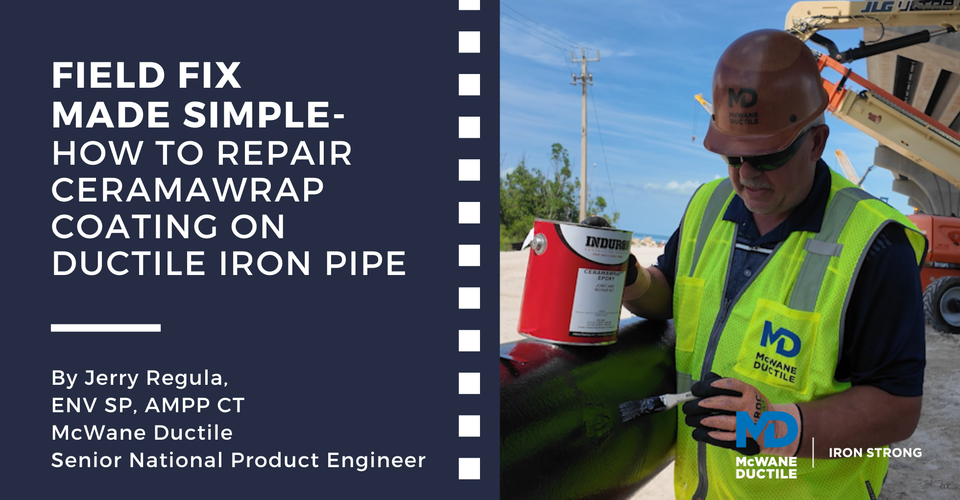With the turn of the calendar into a new year, many people have already started planning for the coming months. Whether planning that warm weather vacation to take a mental break from the snow and ice many of us are experiencing or planning our grocery list for the week ahead, good planning leads to successful outcomes. This preparation is also the case with water utility projects.

With an influx of federal funding from bipartisan legislation like the Build America, Buy America Act (BABA), utilities are looking to upgrade their systems to provide clean water for generations to come. Waukesha Water Utility and its water supply line project are prime examples of how a good plan can become a successful reality for a utility and its residents. In this Iron Strong Blog, we spotlight the emphasis on planning and execution that allowed the Waukesha Water Utility’s water supply line project to be so successful and McWane Ductile’s role in the process.

What Was Waukesha’s Water Issue?
The planning for this project started in March 2002 when the City of Waukesha realized it needed a safer, long-term, sustainable alternative to its existing water supply. The aquifer used to supply the city as well as other portions of Southeast Wisconsin with fresh drinking water had become depleted due to a natural layer of shale rock that restricts rainwater and snowmelt runoff from recharging it. This lower water level also led to a rise in radium levels within the city’s water supply.

How did Waukesha Address its water Supply Concern?
Because of this, the Waukesha Water Utility commissioned a Future Water Supply study to examine water supply alternatives and options for the town. After years of study and public hearings, the City of Waukesha applied for a new water supply to the state's Department of Natural Resources for review. It was then determined that Lake Michigan water was the most sustainable for the community moving forward. In June of 2016, after years of hearings and application revisions, the Compact Council, a group consisting of the eight Great Lakes Governors, approved Waukesha's application, allowing them to begin the design phase in the Fall of that same year.
Who did Waukesha Partner with to Plan?
In the initial planning stages of the Waukesha Water project, various pipe materials were being considered. McWane Ductile’s role in the decision process occurred during those early days when Roy Mundy, P.E., ENV SP, ASSOC. DBIA, Senior Regional Engineer, met routinely with consulting and project engineers to ensure the best product for the job was specified. Due to its reputation for strength, durability, and 100+ year life cycle, Ductile iron was specified as the most suitable pipe material for this infrastructure project. From there, McWane Ductile followed the project through from design to completion.
The plan for the project was to borrow water from Lake Michigan, treat it, and supply roughly 6 million gallons of water daily to over 22,000 customers. The water would then return to Lake Michigan through the Root River. This return line will provide almost 100% of the volume of water used by the utility to be returned to Lake Michigan, significantly lowering the system's environmental impact.
In the fall of 2020, Jerry Regula, National Product Engineer for McWane Ductile, and engineers from the Ductile Iron Pipe Research Association provided pre-construction training to our contractor partners before construction began later that year.
McWane Ductile and our contractor and distribution partners were involved with the Contract 2A portion of the project. This 30" Ductile iron water supply pipeline will convey potable water from the City of Milwaukee to a booster pumping station and reservoirs in the City of Waukesha. Contract Package 2A includes approximately 8.5 miles of new water supply pipeline from the connection to Package 2B, located northeast of the intersection of Coffee Road and Swartz Road in the City of New Berlin, to the connection with the Oklahoma Pumping Station located southeast of the intersection of Oklahoma Avenue and 76th Street in the City of Milwaukee.
This pipeline will provide significant water infrastructure improvements for the current residents of the City of Waukesha, as well as provide for substantial population growth in the future. When asked about the project, Adam Schultz, Project Manager/Estimator for Super Excavators, LLC, said,
"Building a nine-mile pipeline through multiple communities in an urban setting certainly had its challenges, but everyone involved rose to the occasion – especially our workers. Super Excavators, our subcontractors, and material suppliers delivered a product of the utmost quality to bring the City of Waukesha a safe, sustainable alternative to its nearly depleted drinking water supply."
The long lifecycle and versatility of the McWane Ductile iron pipe provided for the project were significant deciding factors in its use. When asked about the Ductile iron pipe on the project, Dan Duchniak, General Manager at Waukesha Water Utility, said,
“We wanted a generational solution, not just a 'Band-Aid.' Ductile iron pipe was more versatile than the other products we looked at. Plus, our contractors were familiar with Ductile iron pipe, making it easy to work with. This system was designed to last well over 100 years.”
Several engineers from the City of Waukesha and consulting engineers on the project also toured one of McWane Ductile’s pipe manufacturing facilities in Coshocton, Ohio, before starting the project. When asked about their plant tour experience, Dan said,
"The foundry visits helped make us feel comfortable with McWane Ductile and their product. It reassured us that the pipe will live up to the high demands of our system and gave us familiarity and confidence in the product and manufacturing process."
McWane Ductile's iron pipe will be able to supply the residents of Waukesha with fresh, quality water for generations to come. The pipe's larger Inside Diameter (ID) will also significantly lower pumping energy costs for Waukesha over the pipeline's lifecycle versus other pipeline material choices. McWane Ductile was even able to fabricate 20-inch flanged outlet pipe for this project. These fabricated pieces allow the contractor to save significant installation time at various project points.
Thanks for Trusting McWane Ductile
As Warren Buffet once said, "Someone is sitting in the shade today because someone planted a tree long ago." This quote is not only true about shady trees on a warm summer day but also about infrastructure investment in your community’s future. The decisions we make today will have a profound impact on future generations. Waukesha Water Utility’s new water supply line project is an excellent example of how a forward-thinking approach to your planning process and execution of that plan can lead to success in your next water pipeline project.
Be sure to check out these other informative Iron Strong Blogs by my colleagues regarding safe yield and energy savings for your water utility:
- Why is Safe Yield Important to the Water Utility? By Roy Mundy, P.E., ENV SP, ASSOC. DBIA, Senior Regional Engineer
- How Does Ductile Iron Pipe Increase Energy Savings for a Water Utility? By John Simpson, P.E., ENV SP, AMPP CT, Regional Engineer
- Can Using Ductile Iron Pipe in Your Water System Save Money on Your Electric Bill? By McWane Ductile
Whether it is design consultation and specification reviews, pre-construction meetings to train contractors on proper installation techniques, facility tours to see how the product is manufactured, or job-site visits to answer any questions in the field, McWane Ductile is proud to help assist you in the planning stages of your next water infrastructure project to ensure that it is #IronStrong. If you would like to learn more about any of these opportunities, reach out to your local McWane Ductile sales representative today!
References:
- United States Environmental Protection Agency, "Waukesha Great Lakes Water Supply Project," Accessed, December 14, 2023. https://www.epa.gov/wifia/waukesha-great-lakes-water-supply-project.
- Wisconsin Department of Natural Resources, "City of Waukesha to Begin Diverting and Returning Lake Michigan Water Under DNR Diversion Approval," Accessed, December 14, 2023. "https://dnr.wisconsin.gov/newsroom/release/82816.







